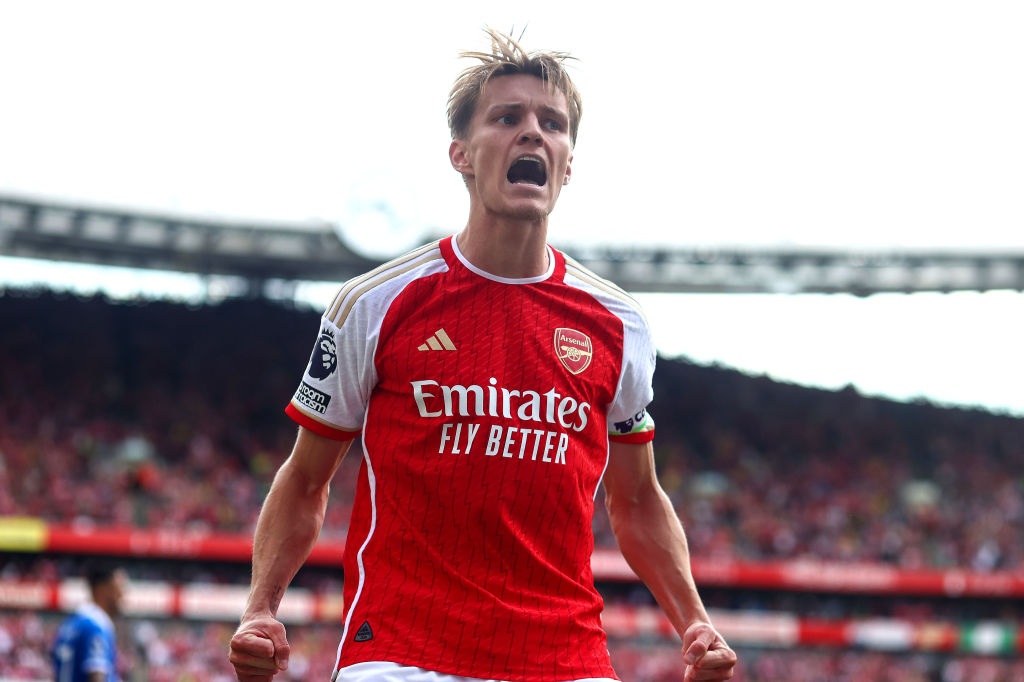When Iceland beat England at Euro 2016: "Before we played England, we said that victory would change our players' lives. It did"
In 2016, Heimir Hallgrimsson was still working as a part-time dentist when he helped to mastermind one of the greatest shocks of all time, as joint manager of Iceland. He tells FFT how his tiny nation stunned the Three Lions
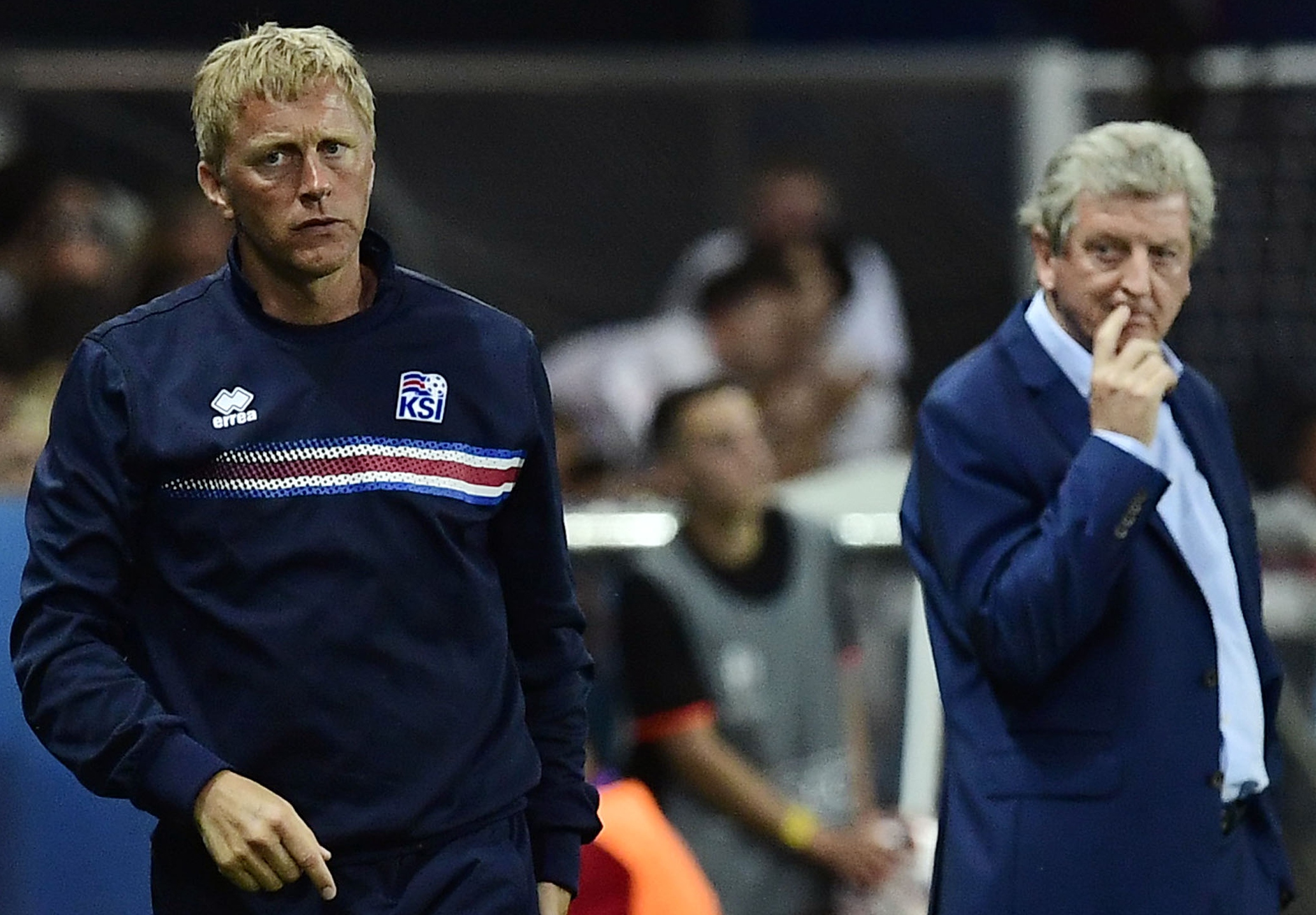
The best features, fun and footballing quizzes, straight to your inbox every week.
You are now subscribed
Your newsletter sign-up was successful
Want to add more newsletters?

Five times a week
FourFourTwo Daily
Fantastic football content straight to your inbox! From the latest transfer news, quizzes, videos, features and interviews with the biggest names in the game, plus lots more.

Once a week
...And it’s LIVE!
Sign up to our FREE live football newsletter, tracking all of the biggest games available to watch on the device of your choice. Never miss a kick-off!
Join the club
Get full access to premium articles, exclusive features and a growing list of member rewards.
This interview with Heimir Hallgrimsson is from the Euro 2020 preview issue of FourFourTwo. Subscribe now and never miss an issue!
When I was growing up, there was a saying that Iceland had too few people to qualify for a major tournament in a global sport like football. There are only 350,000 people in Iceland. Statistically, everybody said we could never have enough good players at one time to do it. But after we qualified for Euro 2016, nobody can say that again – we proved it wrong. That night, fans and players partied together – anywhere else in the world, it’s probably not possible that the fans and the players are all in the pub celebrating with each other! When we went to the finals, we believed we had a chance to do well. We’d had a good qualification campaign. Why not?
My passion for football came very early. I’m from Vestmannaeyjar, on a small island south of the mainland, and played for my local team, IBV, in Iceland’s top league for many years. Football isn’t a professional sport in Iceland. Players didn’t get paid in those days and coaches had a minimum salary, so you couldn’t make a living from it. Passion drives everyone, which in a way can be pretty healthy.
Alongside playing football, I did my university education and jumped from one thing to another. I studied economics at high school, then dentistry at university for six years. I played and coached at the same time, but the most important thing was education. It was my income, my living for the future. After graduating, I went back home, opened my dental clinic and began working there, while continuing to coach.
Normally we started training at 5pm, so at 4pm I stopped working at the clinic and went straight over to the session. I should have been working a little longer for more income, but I finished early because of my passion for football.
I was always thinking about football. It’s nice when you’re working as a dentist, as your mind can wander off and think about something else, but it’s automatic what you do with your hands. You always get time between patients too, so it gave me brief opportunities to plan things or write down any thoughts I’d had.
My coaching career was unorthodox compared to a lot of people in my position – firstly because I started at an early age, at only 17 years old. I coached the youth teams at IBV – the under-10s and under-12s. I did it for 15 years. Then I managed the women’s team for five years and we did really well.
The best features, fun and footballing quizzes, straight to your inbox every week.
Next came managing the men’s team, which I did for another five years from 2006-11. We did well again, competing for the league title in my last two seasons, and the club qualified for the Europa League preliminary rounds three times in a row. For a team from a village of only 5,000 people, it was quite a journey.
After that, I was asked if I’d work as an assistant coach for Iceland’s national team. Eventually, I decided to reduce my dentistry work to create more time to be a coach, which wasn’t a hard choice to make. Coaching different age groups and both genders had allowed me to understand many things, because no one player is the same. It’s the same with dentistry. You get all kinds of people in your chair, and you have to adjust to each patient. Some are very afraid and tense, others are relaxed and calm. You approach every patient in a different way, and it’s the same for every footballer.
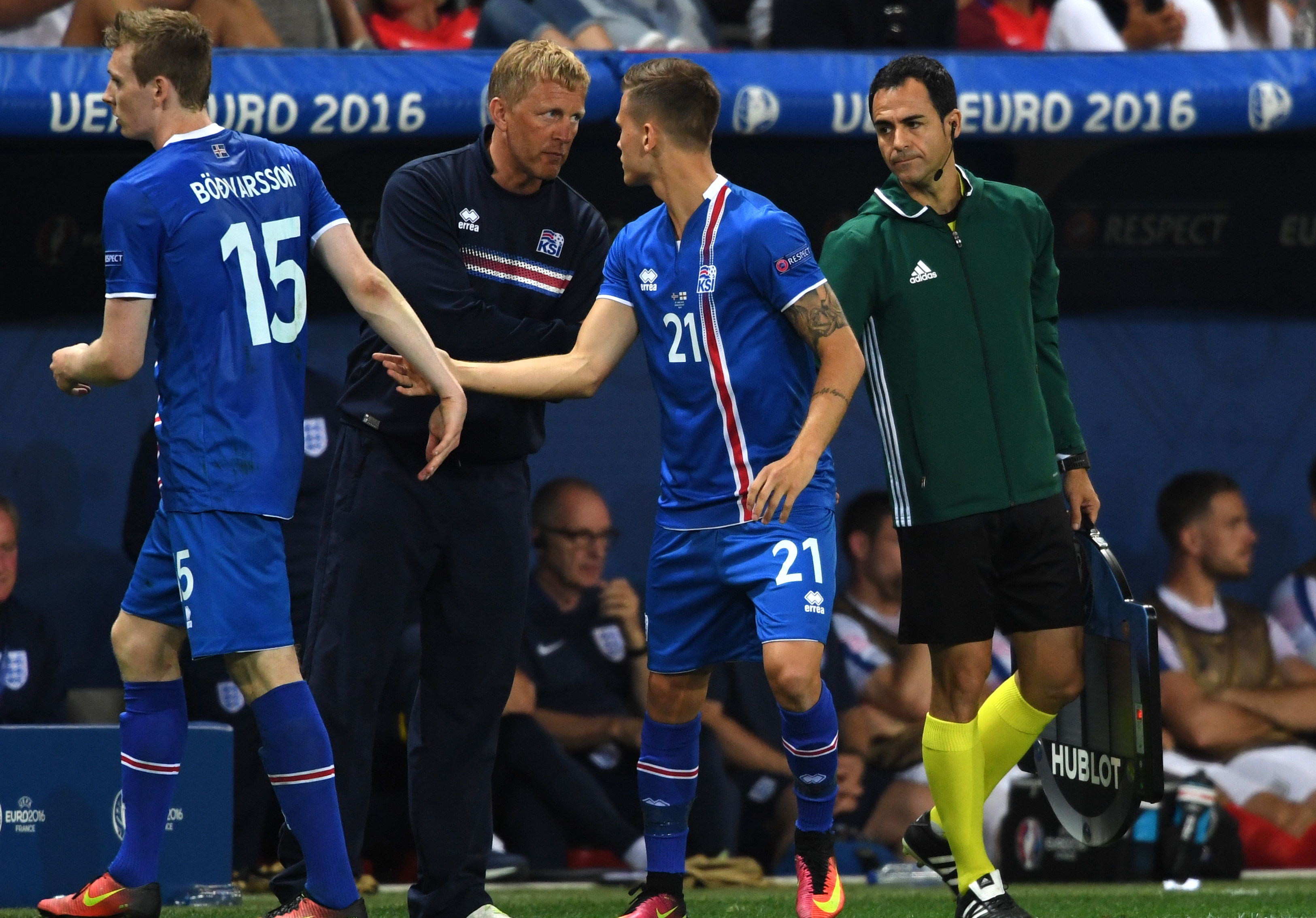
Once I’d joined the Icelandic FA, I was extremely lucky to end up as Lars Lagerback’s assistant. He had previously managed Sweden and taught me so much. He shared his experience. He said that I made decisions too much with my heart and got too emotional, so I’ve tried to be more analytical. I was fortunate to work with him for four years – the last two as joint coach – and think of him today as a best friend.
The step from assistant coach to joint coach was easy from day one. It just shows what an incredible person Lars is – that it wasn’t about prestige or the media for him, it was about how to maximise what you can get out of your staff and players. He made me feel like I was his equal and gave me more responsibilities, so that when I switched from assistant coach to joint coach, then to head coach when Lars left after Euro 2016, it wasn’t a big change.
When qualification for Euro 2016 began, we hoped to make it to the finals. We had a talented group of players that had qualified for the European Under-21 Championship in 2011. Not only did they have the experience of qualifying for a tournament, but they were playing for good teams in Europe. Even at a young age, they’d played numerous games for the national side. As a group of guys, they knew each other well, had played together through the age groups and the chemistry was strong. We had lots of good players with experience – not just one or two who carried the team. We didn’t need to change the mindset of the players because they already had the ambition, and the older members of the squad were excellent characters.
During qualification for the 2014 World Cup, we went all the way to a play-off against Croatia. We drew the first leg in Reykjavik 0-0, but a 2-0 defeat in Zagreb meant that they went to Brazil and we didn’t. Still, we realised how close we were to qualifying for the World Cup. That was probably the turning point for the Icelandic national team.
We saw the qualifying group for the Euros and knew it was going to be really tough. The Netherlands, Czech Republic and Turkey were all in it, but despite being favourites to win the group, the Dutch ended up not qualifying. We beat them 2-0 at home and built some momentum. Our stadium in Iceland gave us a lot of confidence, and we didn’t lose a qualification match there in all my time as national team manager.
The away game in Amsterdam was the one that got us to the finals. We won 1-0 thanks to a Gylfi Sigurdsson penalty, meaning we needed only one point from the last three games to qualify for our first major tournament. We got that point in our next match against Kazakhstan. The celebrations afterwards are something I’ll never forget.
At the Euros, we believed we could go beyond the group stage. We hadn’t had a worse qualification campaign than the three other sides in our group: Portugal, Hungary and Austria. Although Portugal were the favourites, they came closest to being knocked out in the group stage after three draws. They edged through in the final match, and went on to become European champions! Hungary topped our group, but it was so close and could have gone in any direction.
We drew our first two games against Portugal and Hungary. In the final group match, we knew another point against Austria would get us through. We were drawing 1-1, and as it got late in the game they were pounding us. They had some opportunities and more possession. We were hanging on, but then broke away on the counter-attack and scored the winner in the 94th minute.
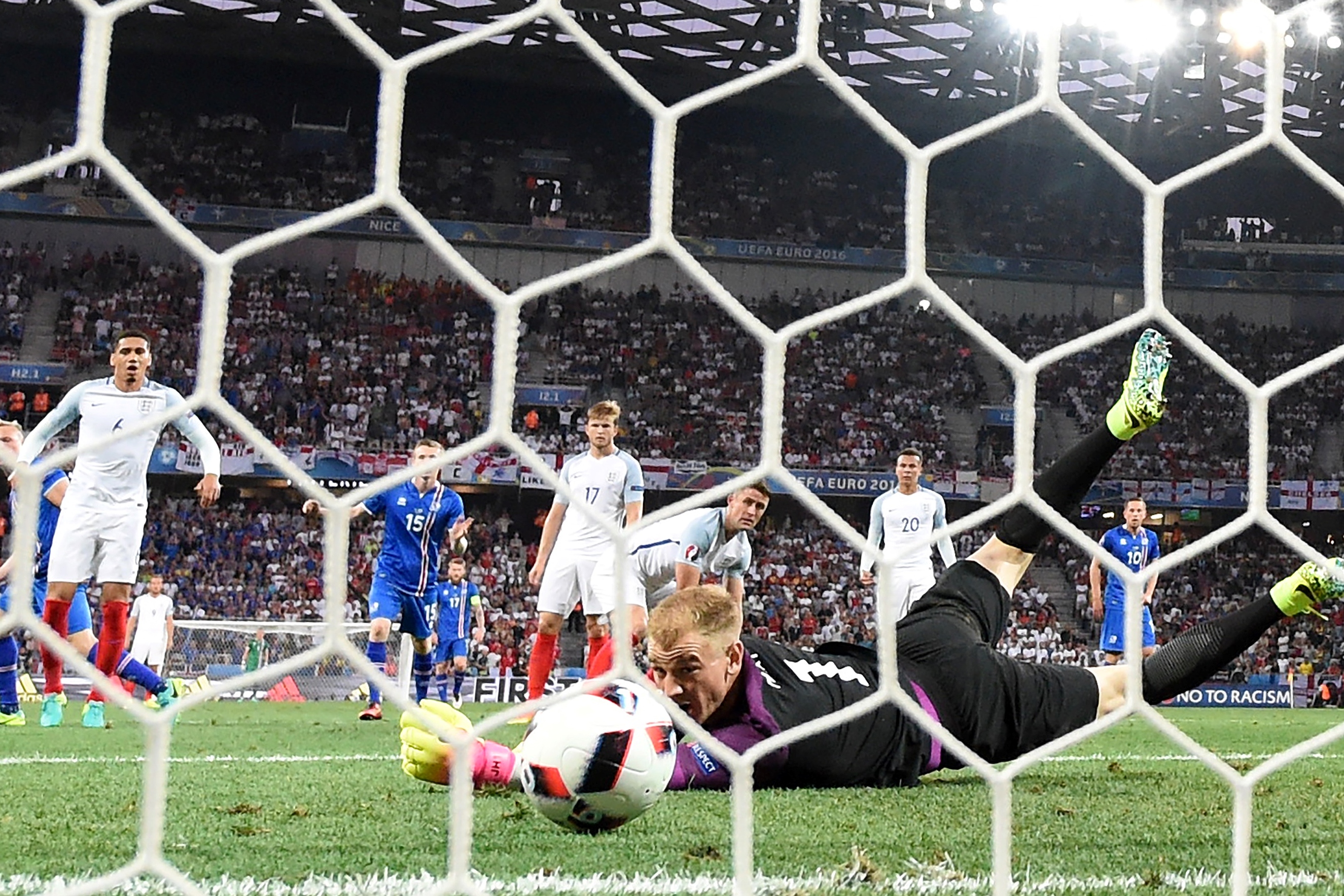
That game was something special, a real rollercoaster. I lost control of my emotions that day. The fans were amazing, and not just those who were in Paris with us. The atmosphere and enthusiasm in Iceland was the same. The positivity was so motivating, it was contagious.
We probably had the smallest coaching staff at the tournament, but nobody had a problem working extra hours, to do whatever needed doing. The driving force was to make the nation proud. To witness the excitement and the happiness of everyone, to see fans on matchday in such big numbers – it was new to us all.
When we scored that winning goal against Austria, I don’t think we realised just how important it was – because it not only kept us in the competition, but moved us up to second in the group. That meant we played England. We also got two extra days’ rest, which was vital after starting with the same 11 players in all three group matches.
You could really notice the step up from the group to the knockout stage. Before the England game, there was probably five times more media coverage. All Icelanders watch the Premier League and have a favourite English team, so we knew every player like they were our friend. If Icelanders aren’t supporting Iceland, they support England. We love English football and everything about it. It’s probably one of the reasons why our style is not so different.
We said a few times that we’d already won over the nation, and that if we put in a good performance against England, we couldn’t lose. If we went there and enjoyed it, we didn’t need to be afraid of anything. Whatever happened, we’d made the country proud. Against England, our team played without fear.
We always played with a zonal defence, so our approach was never specifically about targeting this player or that player, even though we knew every England player’s strengths and weaknesses well. For us, it was all about staying compact and being hard to break down.
As a team, we had a saying that football is about 10 categories, and we wanted to be the best in six out of those 10, rather than just being semi-good in all of them. We focused on what we were strong at, and paid less attention to the areas other countries would be better than us in. We needed good players to do that, but our approach was part of the reason why we did so well at that tournament. We believed in the qualities we had, and played according to those.
We’d planned to keep a clean sheet, so when Wayne Rooney scored from the penalty spot after four minutes, I thought it could be a long night. But we showed no fear and equalised quickly after that. Maybe Rooney’s early goal was worse for England than it was for us. If there was an underestimation of Iceland, that most likely elevated further when they scored in the opening stages.
To equalise within a couple of minutes was probably a bigger shock for England than it was for us to concede early on. Psychologically, we had a brilliant reaction that showed we were not going down easily. That goal gave us a lot of strength and energy. From thinking, ‘Maybe we’re going to be rolled over’, suddenly it was, ‘Oh, we’ve got a chance and we’re going to fight them’.
Scoring our second goal to go in ahead at half-time was a big, big confidence boost. There was no fear of losing the game, because we’d already won. We were giving them a problem. At half-time, everyone was so focused on, ‘We can win this now’.
Watching the match back, I noticed how relaxed the players were and how calm we were on the bench. It reflects how confidently the team was playing on the pitch. We didn’t concede clear chances, even though they needed to score. We played one of our best games, and Ragnar Sigurdsson arguably put in one of the greatest performances for a centre-back in Iceland history. He made good interceptions and tackles, scored the first goal and had a bicycle-kick saved.
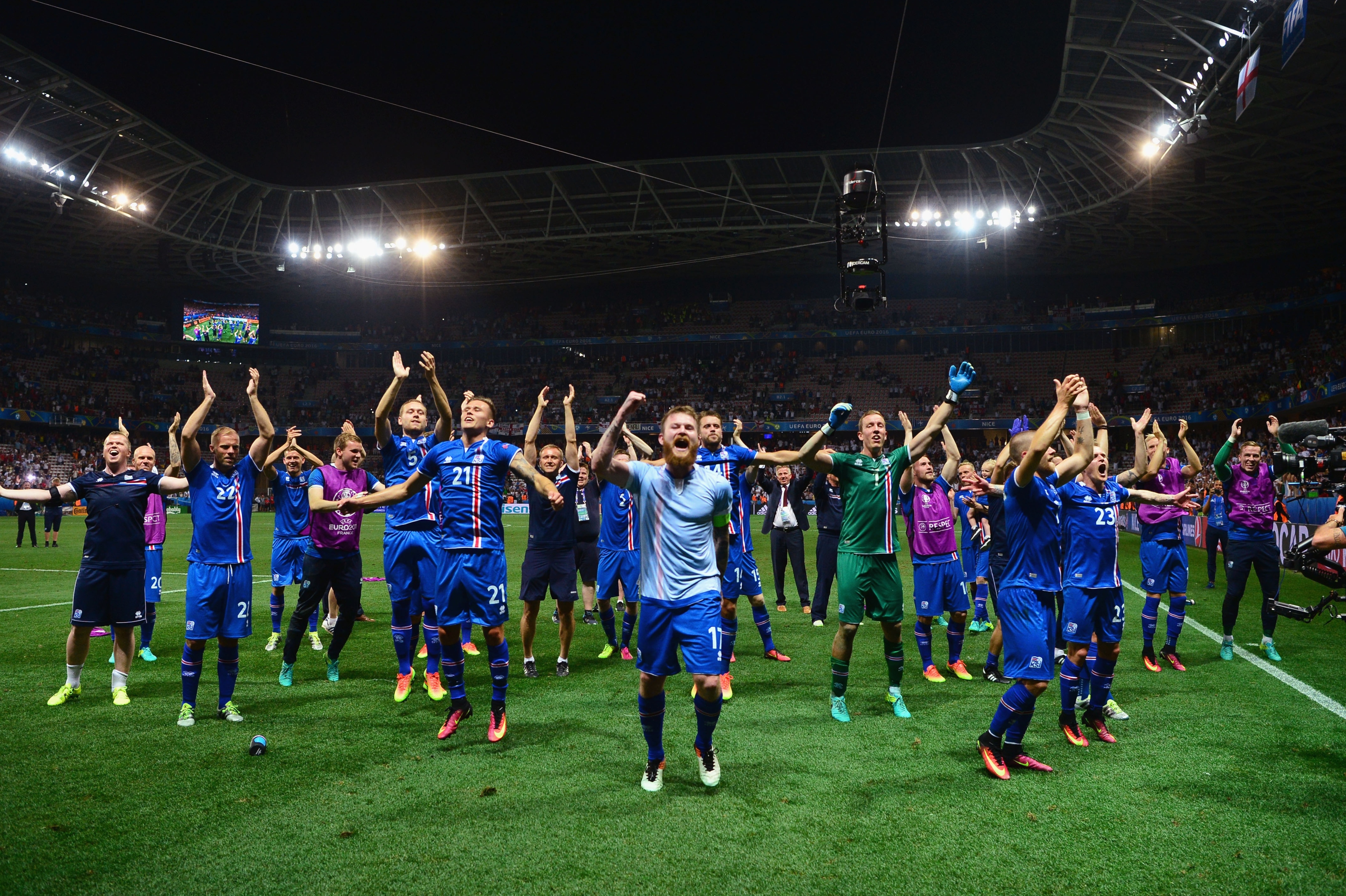
We said before kick-off that if we won, it would change the players’ lives. It probably did. There was more attention on us, and some of the players got new contracts with bigger clubs.
It also changed a lot about how people saw Iceland. France weren’t going to underestimate us in the quarter-final. By upsetting England, teams had to take Iceland seriously, so everything changed in regard to the respect of our small nation. Both the game against France and the World Cup qualifiers that followed were reminders that we couldn’t play up to being the small team any more.
It’s easy to say that maybe the France game was one too far for us, and they were better that day. They were also cleverer – they waited and allowed us to go at them, to take the ball high up the pitch, then counter-attacked. We were 4-0 down at half-time and the game was lost, but we fought back. We lost 5-2 but were so proud of the players.
The driving force that had got us that far was possibly fading a bit by then. No one can work on overload forever and maybe the battery was empty – not only for the players, but for all of the Icelanders who had been in France far longer than planned. Icelanders will always love France for that tournament, because it was such a happy time.
It was perhaps the most difficult thing in my career to go from that competition to the next – to go from beating England to refocusing the players and nation for our opening World Cup qualifier against Ukraine. It was tough, but we did well to qualify for our first World Cup having been in a hard group alongside Croatia and Turkey. Croatia eventually reached the World Cup final in Russia, but we topped the qualification table, which was amazing.
Ahead of the tournament, we tried to hammer into the players the sentence ‘success is not a destination, it’s a continuous journey to the right direction’. That’s a saying that’s still true for Iceland now.
I left the job after the 2018 World Cup – I’ve been coaching in Qatar with Al-Arabi since then – and sadly Iceland missed out on Euro 2020, losing a play-off to Hungary after conceding two late goals.
I believe Iceland can qualify for more tournaments, but I don’t think we can do it in the same way again. Euro 2016 was a one-time thing. You can never recreate your first kiss, and it was a really nice first kiss.
Interview: Chris Evans
This article first appeared in the June 2021 issue of FourFourTwo
Subscribe to FourFourTwo today and get a FREE England Euro 96 shirt!
READ NEXT
FOR YOUR HOME Euro 2020 wall chart: Download free with full schedule, fixtures and dates
REFS Euro 2020 referees revealed: who are they, how were they selected and will VAR be in use?
 Join The Club
Join The Club





